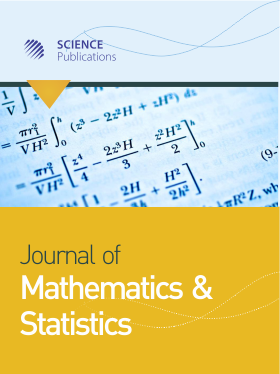An Application of Univariate Statistics to Hotelling's T2
Abstract
Problem statement: Hotelling's T2 statistic has been well documented in the existing literature and exact as well as asymptotic results have been obtained. In the present article, we focus on an important particular case of T2 and we note that, there is no clear way to show, how univariate results, used in the theory of Student’s t statistic, could be used to derive corresponding multivariate ones, for T2. Therefore, our goal is to find an alternative method, which would be more useful than the usual one, in order to generalize directly univariate theory. Approach: At first, we used some matrix tools in order to obtain an equivalent algebraic form for T2 and, then, we applied some univariate results concerning distributions which arise from the normal distribution. Results: We found an algebraic representation of T2, which can be conceived as the natural extension of some results appearing in the literature and, we used our findings to show how standard univariate techniques can be applied in order to derive the exact and limiting distributions of T2. Conclusion: Using the proposed representation of T2 gives a better insight on the generalization of univariate results to multivariate analyses and indicates, at the same time, an alternative way to prove typical multivariate results. Furthermore, it allows for usual theoretical calculations to simplify.
DOI: https://doi.org/10.3844/jmssp.2011.86.94

- 6,015 Views
- 4,610 Downloads
- 0 Citations
Download
Keywords
- Limiting distributions
- multivariate theory
- univariate results
- independently distributed
- null hypothesis
- asymptotic results
- orthogonal
- comprehensive analysis
